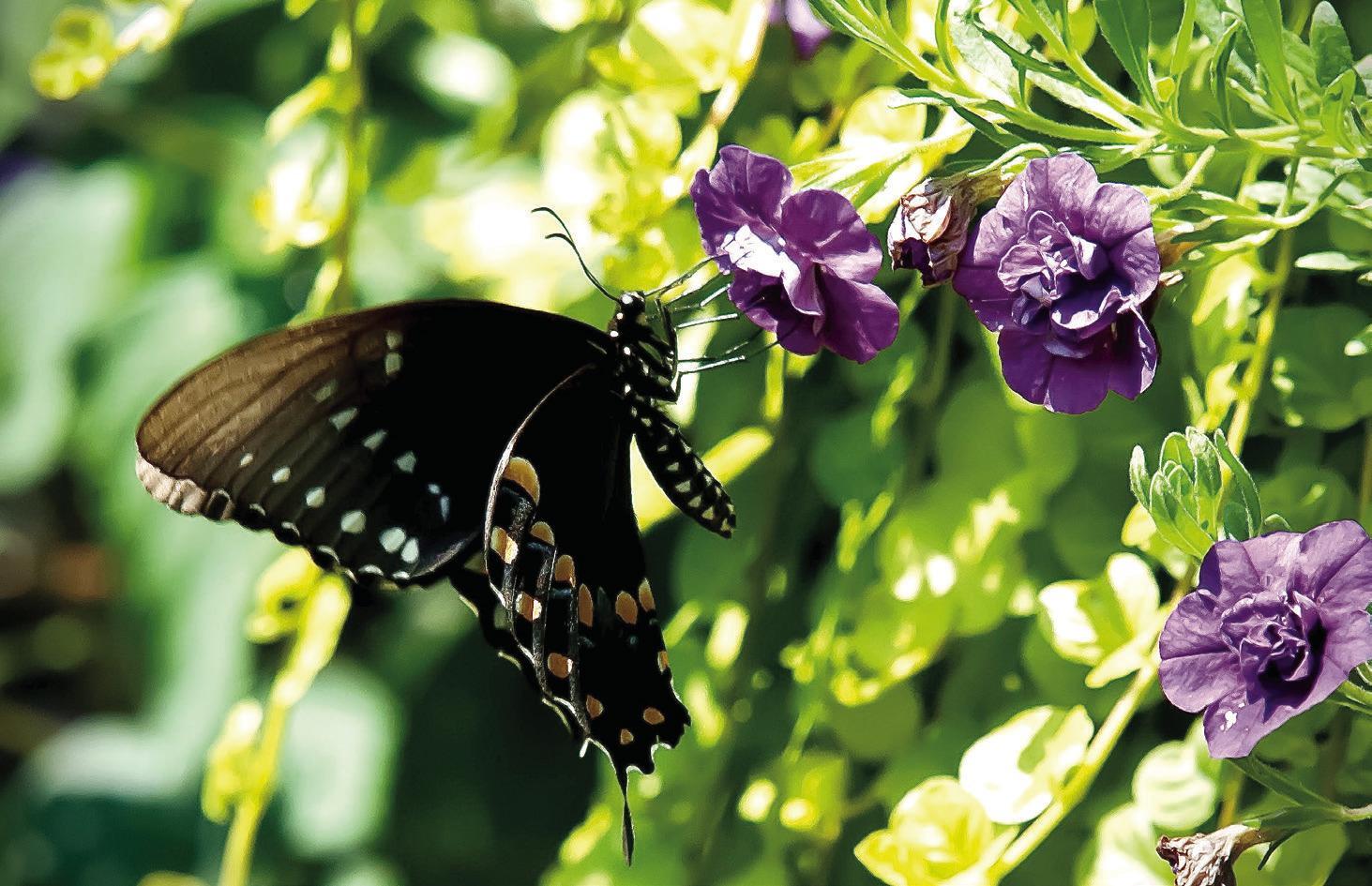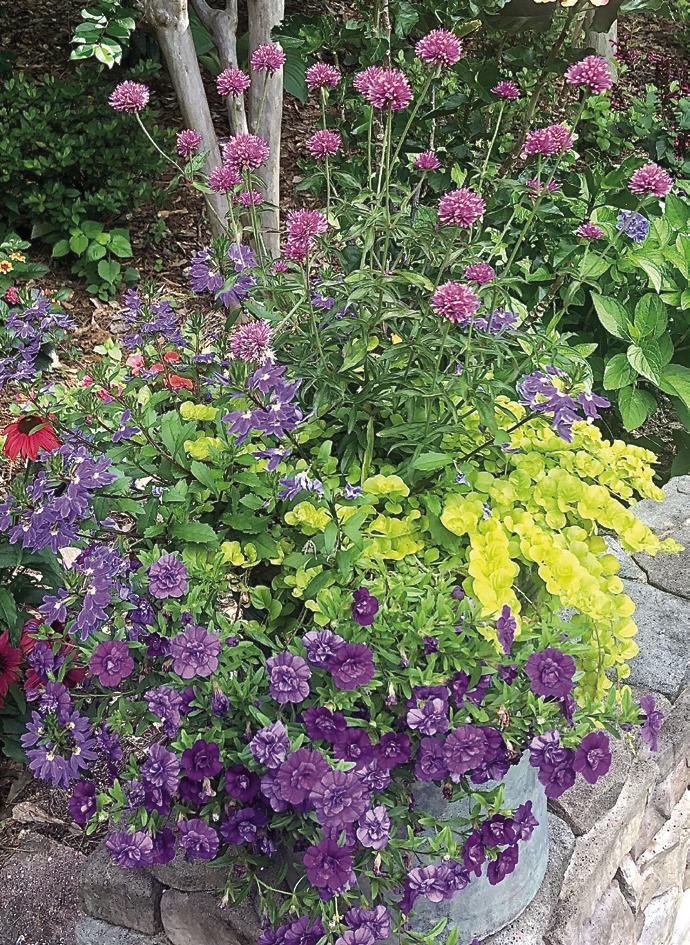
This Spicebush Swallowtail is one of several species that have been seen feeding on the Superbells Double Blue calibrachoa.
Photos by Norman Winter

Superbells Double Blue calibrachoa shows out in this smoke stack-shaped container with Truffula Pink gomphrena, Goldilocks creeping Jenny, and Whirlwind Blue scaevola.


This container features Superbells Double Yellow that makes it debut next spring, Superbells Tangerine Punch calibrachoas along with Unplugged Pink salvia.
Photo by Nornan Winter
Superbells Double Calibrochoas racking up awards
Since 2018, Superbells Double calibrachoa varieties have won 67 awards, yet in my travels gardeners seem to rarely venture off the single-petaled path. I admit I have a flaming passion for the punch varieties like Superbells Grape Punch, Pomegranate Punch and Black Currant Punch. The last four years, however, I have gotten to try some double selections and they have all blown away any misconceptions I might have had and probably yours, too.
I am assuming you haven’t tried Superbells Double varieties. For all the world, they look like miniature roses except they have no thorns, no blackspot, no powdery mildew and they don’t need deadheading. They also will just keep up this performance of nonstop blooming. Now you are beginning to get the picture of why the trophy case is chock full of Top Performer and Perfect Score awards.
The Garden Guy’s two biggest surprises with all Superbells calibrachoas is first their ability to bring in butterflies and hummingbirds. This was so unexpected and is a real visual treat. The double flowered selections bring in Cloudless Sulphur butterflies, swallowtails and hummingbirds.
The second surprise is their cold hardiness. I love planting Superbells in October and November when I can get them, but even my Superbells Double Blue planted in the spring performed through the summer and winter. Now, I am in Zone 8a so your cold hardiness may be different.
There are now nine different varieties of Superbells Double calibrachoas to choose from. You might be muttering to yourself what would you do with a double? This is a perfect example of that old saying, “majoring in the minors.” Any partnership or combination you can do with a single petaled variety you do with a double.
The first combo I created was in what I consider a smoke stack shaped pot, kind of narrow but taller. I used Truffula Pink gomphrena as the thriller and used Whirlwind Blue scaevola, Goldilocks creeping Jenny and Superbells Double Blue calibrachoa. I loved it.
My son, James, used the new Superbells Double Yellow with Superbells Tangerine Punch and Unplugged Pink salvia. While this stretched Dad’s color comfort zone a bit, it was really quite magical especially considering there were almost an uncountable number of double yellow blooms. James is totally sold on the Superbells Double Yellow calibrachoa which makes its debut in 2023. Then the Young’s Plant Farm Annual Garden Tour this year blew us away with a new Proven Winners recipe called “Surfin Safari.” This container featured the award-winning Superbells Double Amber calibrachoa, Safari Dawn James Britannia also called South African Phlox and Supertunia Royal Magenta. This beautiful mix showing out in June broke barriers both against doubles and our ability to grow James Britannia in the South.
Almost all of my Superbells planted both in the spring and last fall are flush with growth and blooms, making me think I am going to hit the proverbial grand slam home run going into winter, but as we all know, time will tell.
Planting in containers with a very good potting soil is the way to go with Superbells, though if you can duplicate in your garden bed you will garner the green thumb there too. Feeding with a dilute water-soluble fertilizer will keep you in good shape. I try to do this every two to three weeks. But by all means keep a pair of sharp scissors or pruners handy and trim back as needed at the end of summer or any time a bare or tired, unproductive branch develops.
Superbells calibrachoas, single petaled or double bloomers rank among the best choices for your garden dollar. Follow me on Facebook @Norman-WinterTheGarden Guy for more photos and garden inspiration.











